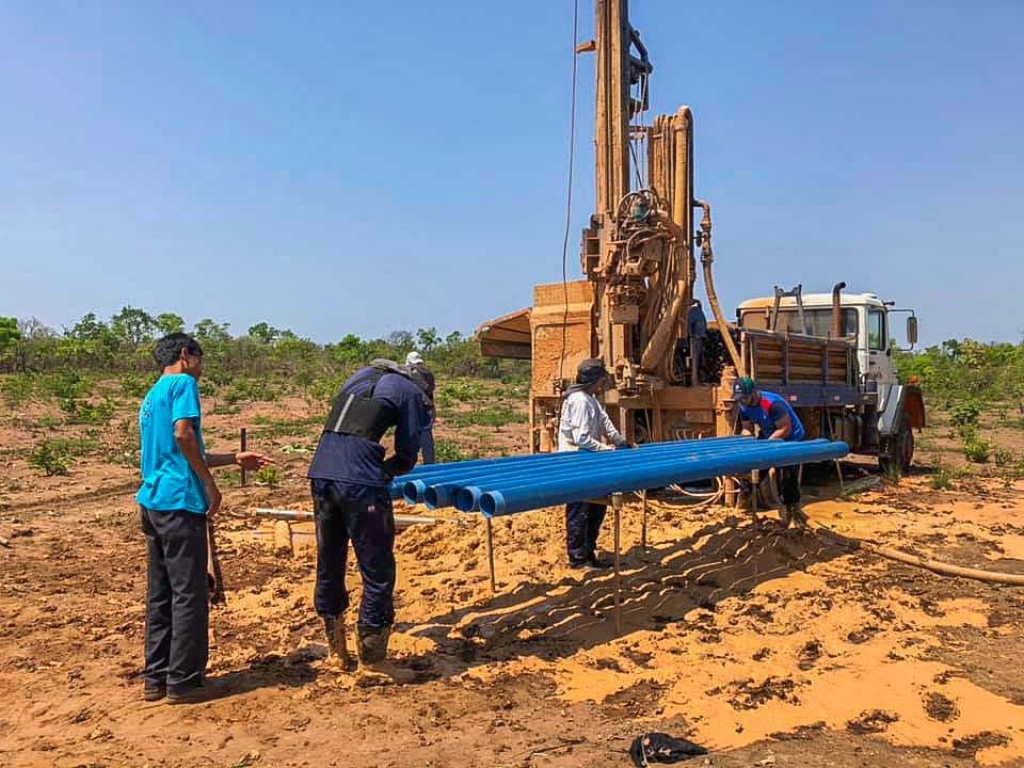BRAZIL: 9 new wells to bring clean water to Indigenous villages

Salesian Ambulant Missionary Assistance project drills 9 artesian wells in Xavante Indigenous villages
(MissionNewswire) The Salesian Province of Brazil-Campo Grande’s Ambulant Missionary Assistance (AMA) project has begun drilling nine artesian wells in the Indigenous villages of Sangradouro and at the São José Indigenous State School. The wells will be between 131 and 197 feet (40 and 60 meters) deep, depending on the depth of the water table, and will serve about 60 people in each village.
The AMA working group, led by Salesian Brother Alois Würstle, is utilizing trucks equipped with drilling machines capable of digging earth and rocks. The Xavante villages in the region are generally built on the banks of small streams, but during periods of drought the water becomes very muddy. In some severe cases, water is completely lacking.
UN-Water estimates that worldwide 2.2 billion people are living without access to safe water. One in four primary schools has no drinking water service, with students using unprotected water sources or going thirsty. In addition, UN-Water notes that more than 700 children under 5 years of age die every day from diarrheal disease linked to unsafe water and poor sanitation.
“Salesian missionaries in Brazil and around the globe are working to improve water access, which brings a sense of dignity to children and their families and ensures they have access to proper hygiene and safe drinking water. This also reduces the number of waterborne illnesses that affect these villages,” said Father Gus Baek, director of Salesian Missions, the U.S. development arm of the Salesians of Don Bosco.
Brazil has one of the strongest economies in Latin America and is an important agricultural and industrial power in the region. Just over 15 percent of Brazilians live in poverty, with the majority living in the rural northeast of the country, according to the World Bank. While Brazil is making positive changes, there are still large gaps between the poor and the rich, and issues of income inequality and social exclusion remain at the root of poverty.
Inequalities also exist in access to education and educational efficiency. These inequalities are greatest for children and youth who are poor, live in rural areas or who have an incomplete compulsory education. Salesian missionaries working with poor youth and their families in Brazil develop programs and provide youth opportunities for furthering their education and skills.
###
Sources:
ANS Photo (usage permissions and guidelines must be requested from ANS)
Salesian Missions – Brazil
World Bank – Brazil





